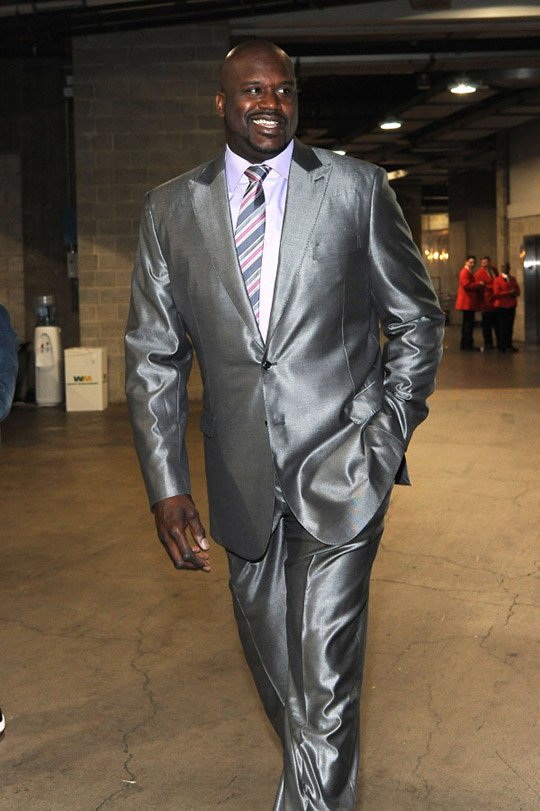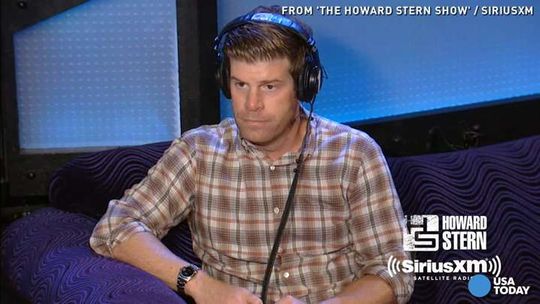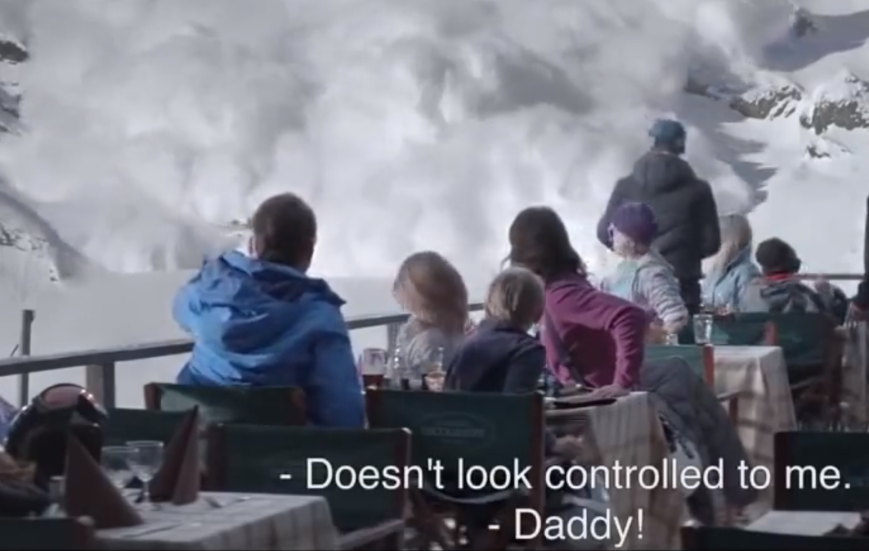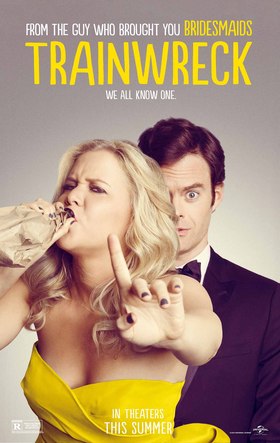The Jerk Store is back for a reunion show, the perfect accompaniment to your 2016 Summer Olympics viewing!
Fashion and Shaq
This shorter episode covers the origins of the Gentleman of Leisure, (5:30) Fashion choices and how we get comfortable with what we decide to wear, and a listener email (33:20) about who could beat up Shaq in his prime. Subscribe. Review. Email thejerkstorepodcast@hotmail.com, Telepathic Subscribe.
[audio http://traffic.libsyn.com/thejerkstore/JerkStoreFashionShaq.mp3]

When you know people will be looking at you, what do you choose to wear?
Steve Rannazzisi and Microaggressions
Episode 74.3333: The Gentleman of Leisure Has Arrived
On our new episode, we are joined by special guest The Gentleman of Leisure, a.k.a. GoL, a.k.a. Castor’s brother. Topics include: feeling trapped inside your own head, trans women passing and being attractive, recapping a wedding weekend and other memorable parties.
Episode breakdown:
Feeling trapped in your own head — 5:55
Trans women passing — 34:00
Tales from a summer wedding/tales from the GoL’s trips abroad — 1:02:05
Multiplayer Video Games and Swear Words
Force Majeure & Forced Climaxes
A Revolution of the Mind: Pain and Imperfection in Cameron Crowe’s Vanilla Sky
Gods here — Vanilla Sky is a film that Castor and I have been fans of for many years, and more recently Slayer has watched it (and enjoyed it). It is a much-maligned film, and I have no concept of how wide of an audience it has reached. But you don’t need to have seen the film to enjoy this blog post (just be aware that all parts of the movie are discussed in detail), and neither is the question of why it is so spitefully criticized addressed here. That is a question we’ll leave for a potential future podcast discussion. Rather, this post represents my own reflections on some of the biggest questions posed by the film. Thanks for reading.
In the film Vanilla Sky, David Aames becomes horribly disfigured. He is trapped in the passenger seat of a car speeding through New York City streets, hoping that his mind will catch up with his life in time for him to say just the right words to defuse the situation. He tells the driver – his hysterical lover Julie – that he likes her music (perfunctorily), that he wants to see her apartment (finally), and he tells her that he loves her (as if he knows the meaning of the word). Julie speeds up and crashes the car off a bridge. It glides through the air silently, drops 30 feet to the ground, and folds in half. When you see this in a movie theater, you can feel the collective pit in the stomachs of the audience at this moment. It is one of the most beautiful moments in the film.
Vanilla Sky is a story that poses many questions. It is a film that plays out with the dream logic that pervades our inner lives and oftentimes is evident in our reality. Among the most (seemingly) illogical questions it asks are: Can you truly live a fulfilling life without imperfection? Is there a place of self-knowledge and wisdom that can only be reached through the pain and suffering that imperfection brings? And if so, are these things really bad?
When the story begins, David is having nightmares about being alone. Why should he have nightmares about anything? He is handsome and rich. His 33rd birthday party is attended by supermodels and Steven Spielberg. He displays Monets in his private apartment-within-an-apartment. When his friend Brian tells him how envious he is of his perfect life, David’s standard response is “Livin’ the dream, baby.” If only he knew how appropriate a reply that is.
Many of us (especially if we lived the life that David Aames lives) would consider a disfiguring car crash the worst thing that could possibly happen to us. To even entertain thoughts to the contrary may seem insane or, if you’re like me, it can feel like you are inviting the universe to introduce tragedy into your life. And maybe you are. The remarkable thing about Vanilla Sky is how it puts such a violent accident and the resulting horrific injuries front-and-center, and by the end of film has us questioning if this devastating turn of events ultimately leads the protagonist to a more fulfilling life. We are all fragile, and naturally we recognize the terror in David’s eyes and voice as Julie drives the two of them off the bridge. But that terror is increased by the fact that David knows he is a man facing his destiny unprepared. To that point, he has been “snowboarding through his life” (his own words). If he has sought meaning, he has been unable to find it amidst the trappings of a life that was created for him by his father – a giant in the publishing industry, and a man who taught David that money is everything. This is echoed by those around him. If you are rich and you can’t find happiness, they seem to say, then what the fuck is wrong with you? He is disconnected from himself, so he dreams of being isolated. He finds himself running through an empty Times Square, surrounded by the images of the things he must buy, of flawless models whose looks he must emulate – distractions from the self-knowledge he unconsciously yearns for. In another dream, he falls from a great height to his death.
“What is happiness to you, David?” is a line repeated many times in the film. Ultimately, David comes to understand that – in the words of Maya Angelou – “in the struggle lies the joy.” But he falls down many times before he reaches that point. On the last night before the car crash, David stays up all night talking with a woman named Sofia. He is fascinated by her because she does not seem impressed by the things he possesses. He begins to fall in love with her when he sees that while she has very concrete obstacles in her life, she remains positive and hopeful. And she begins to fall in love with him when he responds to her poking and prodding by showing her what he really is: imperfect.
After his accident, David withdraws from the world. He refuses to allow Sofia to see him; he ignores his responsibilities at work (not that he paid them much attention prior to his disfigurement). He becomes obsessed with finding a way to restore his good looks. (When a doctor suggests that they could reconstruct his injured arm, David leers at him. “Fuck my arm!” he screams.) When he finally does agree to a date with Sofia, he wears a mask to conceal his injuries and drinks to excess. The date does not go well.
David’s informal motto of “Livin’ the dream” contrasts with that of his friend Brian. Brian comes from a more humble background, and the words he chooses to live by reflect that: “The sweet isn’t as sweet without the sour,” he tells David on many occasions. After David’s accident and disfigurement, these words are more pertinent than ever. But David’s inability to look within himself prevents him from fully grasping the concept. Instead, he uses his remaining wealth to buy a life full of sweetness: a life inside a computer simulation that will replace his real life. A life that he can control. He willingly enters this new life with the promise that the transition from reality into his dream world will be smoothed over in his memory.
And then, seemingly out of nowhere, everything he has lost is restored: his doctors are able to fix his face, and Sofia decides to help him put his life back together (One of the happiest moments in David’s dream life is when Sofia removes the bandages from his surgery and gazes on his face. “It’s perfect!” she exclaims.) While David is still fixated on the things he believes he needs and the friendships and romances he believes he must have in order to make himself happy, at least now he has them all again. But perhaps sensing that he still has not come to terms with himself, and suspicious that his sudden good fortune has dropped into his lap a little too conveniently, David lives with an ever-present sense of foreboding. The knowledge that his perfect life is an illusion gnaws at him, desperate to emerge from his subconscious and be dealt with. The computer simulation turns against him. In mirrors he sees his formerly disfigured face returning, and he feels certain Sofia will leave him if (or when) it does. He is arrested and put in prison for the way he treated Julie, and Brian turns his back on him as a result. David’s attempts to run away from himself have turned his dream into a nightmare. He is exposed, judged, and alone.
When he is unable to take it anymore, he creates for himself a scenario in which he can finally confront his fears. Standing atop a skyscraper a mile above New York City, David finally comes to terms with what he must do: he must leave the dream. And not just the literal dream machine — he must leave behind the life of illusions, the life of sweetness that he lived before his accident. David realizes that all of his pain and suffering have been essential to help him reach this moment. He realizes he can control his life, and not just through a dream machine, but in the real world. Having connected with himself, he is able to connect with other people, and he takes advantage of his dream world to conjure up one truly happy moment with Sofia and Brian before he returns to reality. When he finally steps up to the edge of the skyscraper, he stumbles: he is afraid. His imperfections are exposed, but now he chooses to embrace them. He chooses to embrace the struggle, and to know himself completely: the alluring and the repulsive, the sweet and the sour. He jumps, he hits the ground. The film ends.
We so often tell ourselves, if only I had *this*, my life would be perfect. But Vanilla Sky tells us the story of a man who had all of those things, and asks us to reconsider whether we are being honest with ourselves when we say this. Perhaps what is really missing is a deeper connection with our inner life, and some perspective. So, when we encounter pain and imperfection, we should ask: are they really bad? Or are they just opportunities to better prepare for our ultimate destinies? One thing is for sure: when David stands in the sunlight on the roof of that terrifying skyscraper and prepares to embrace himself, he thinks back with love on every moment that led him there. After all, the sweet just isn’t as sweet without the sour.
Female Driven Episode (Part 2)
The experiences of attending movie event screenings, disasterous and otherwise: Ghostbusters, Jaws, The Room, Animal House…. 35:06 The Extamporaneous Speaking Competition 4: Say What You Need to Say (Insanity)
Female Driven Episode (Part 1)
The Jerk Store: Life Stories
0:00 Cold open and subway stories. 12:00 Listener mail, finding your fly down. 24:18 Academic Anxiety and missed exams, 44:45: Concert Experiences, 1:01:18: Bad High Experience, 1:14:10 Group make-up-a-story game.




